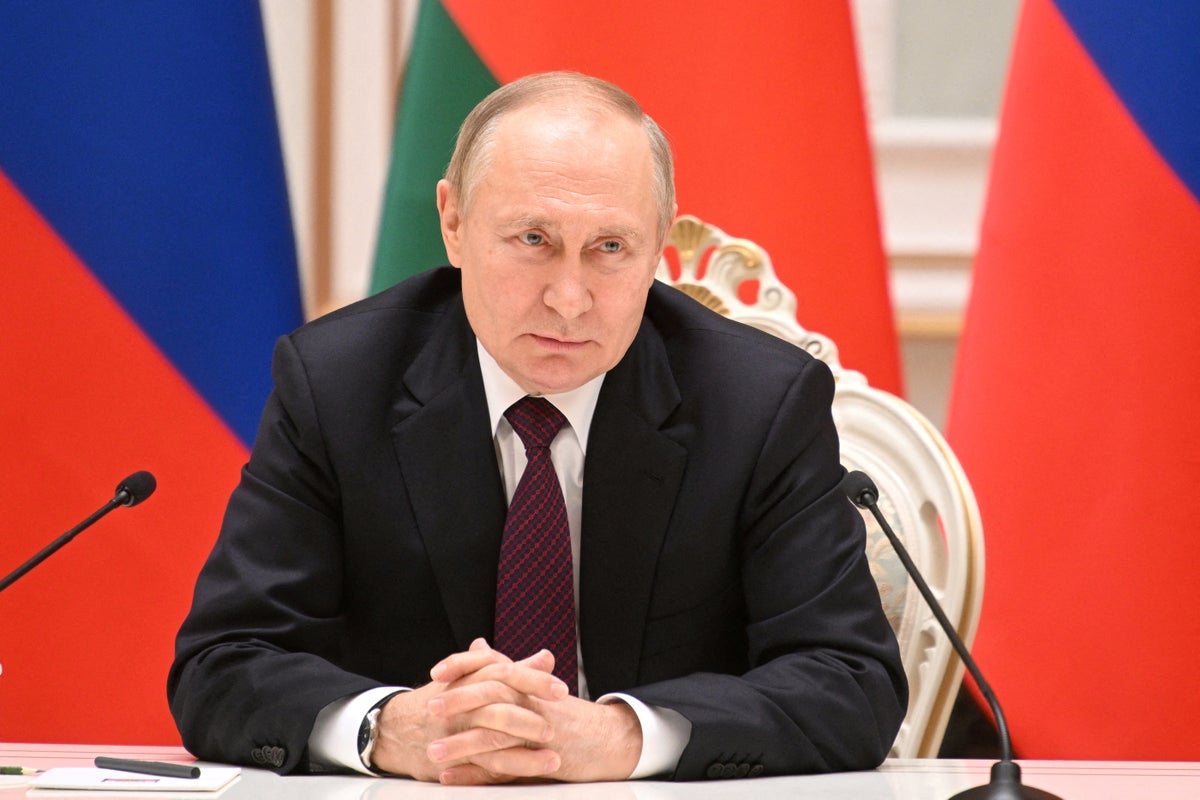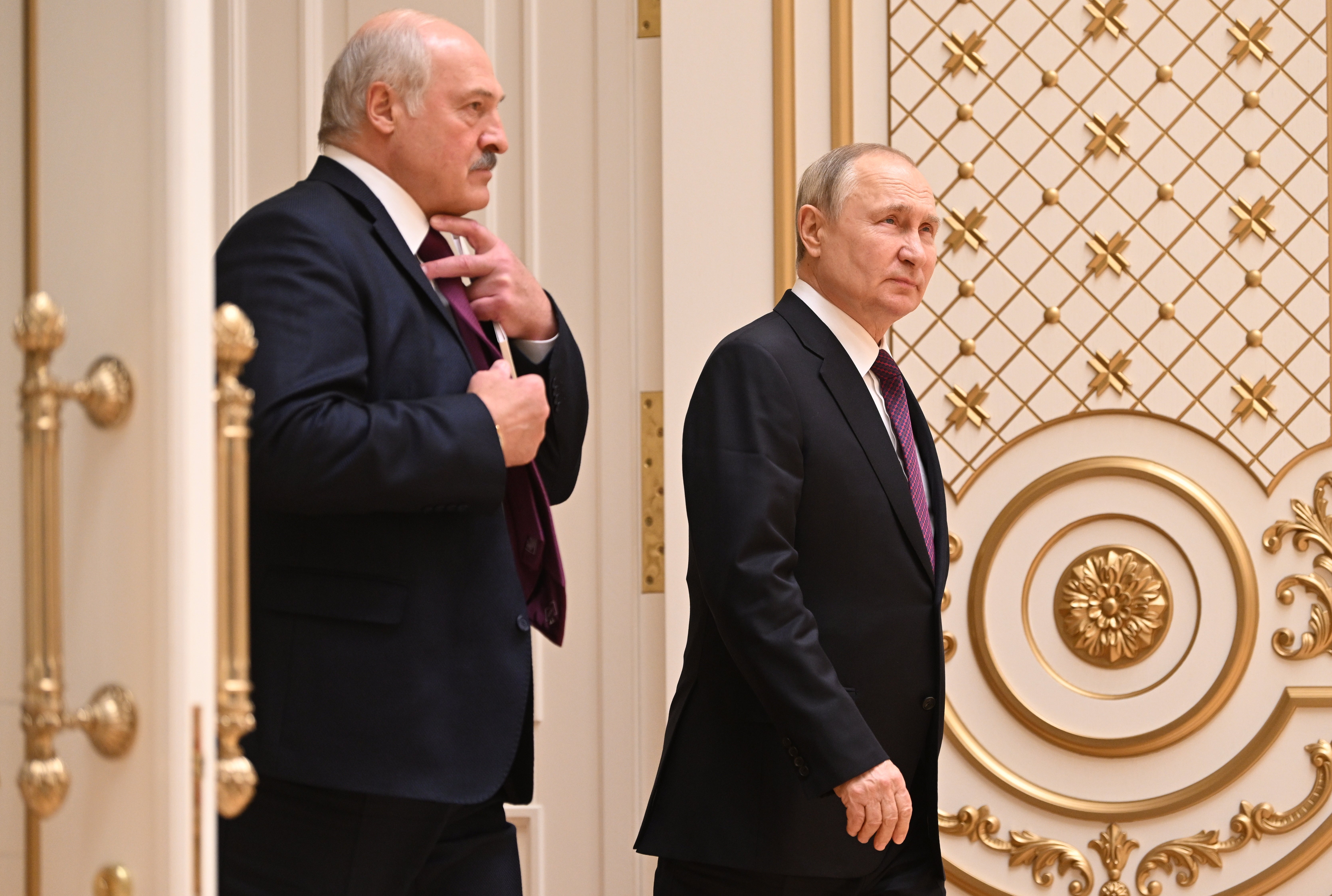
Russian president Vladimir Putin has ordered the strengthening of his coutry’s borders and instructed security services to step up defences against “traitors, spies and saboteurs”, according to state media.
Reports also said that Mr Putin told the Federal Security Bureau (FSB) it must protect people in the Ukrainian regions claimed by Russia in September, promising agents “modern equipment and weapons” for the cause.
“[The border] must be reliably covered,” the RIA news agency quoted him as saying. “Any attempts to violate it must be thwarted quickly and effectively using whatever forces and means we have at our disposal, including mobile action units and special forces.”
Speaking on Security Service Workers’ Day, widely celebrated in Russia, Mr Putin instructed the services to increase control of the society and maximise their “use of the operational, technical and personnel potential” to prevent risks coming from abroad and internal traitors.
“Maximum composure, concentration of forces is now required from counterintelligence agencies, including military intelligence,” Tass state agency citied Putin as saying. “It is necessary to severely suppress the actions of foreign special services, quickly identify traitors, spies and saboteurs.”
The president has been signalling a change of direction in the war he started almost 10 months ago.
On Friday he called a meeting of his armed forces commanders to take suggestions on “immediate and medium term actions” to take in a conflict that has seen Russia forced into humiliating retreat several times.
Mr Putin’s new refreshed approach follows drone attacks on Russian air bases that Moscow blamed on Ukraine.

He flew to Minsk on Monday to meet Alexander Lukashenko, the leader of Russia’s closest ally Belarus, after officials in Kyiv said they were expecting the latter country to allow Moscow to send troops into Ukraine over its border sometime early in 2023.
The Belarusian president allowed Russia to use his country as a launch pad for the invasion in February but denies planning to enter the war.
Ukrainian joint forces commander Serhiy Nayev had said he believed the talks would address “further aggression against Ukraine and the broader involvement of the Belarusian armed forces in the operation against Ukraine, in particular, in our opinion, also on the ground”.
There is no end in sight to Russia’s invasion of Ukraine, now in its 10th month. The conflict, Europe’s largest since World War Two, has killed tens of thousands of people, driven millions from their homes, and reduced cities to ruins.







